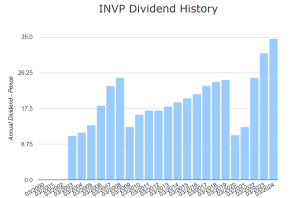The FTSE 250‘s risen 9% in value over the past year. But it’s not been good news for all of the index’s constituents. Even some top-quality mid-cap shares have slumped due to recent pressures.
These two UK shares have endured double-digit falls in the last 12 months. But the cream rises to the top, as they say. So I think they may rebound sharply, perhaps by the end of 2025, so could be worth considering before this happens.
Here’s why.
B&M European Value Retail
Down 34%, B&M European Value Retail‘s (LSE:BME) one of the FTSE 250’s biggest fallers over the past year. It actually started 2024 in the FTSE 100 before tumbling out of the blue-chip index just before Christmas.
This represents a solid dip-buying opportunity to me. With a forward price-to-earnings (P/E) ratio of 9.2 times, it trades at a healthy discount to the broader blue-chip index (14.5 times).
Investors were spooked by B&M’s lack of forward guidance in June’s full-year trading statement, and the company’s shares haven’t recovered since. Fears that falling inflation would draw shoppers away from low-cost retailers hasn’t helped the share price either.
However, a series of robust trading updates since then suggest investors are being too pessimistic. Latest financials (9 January) showed group revenues at constant currencies up 3.5% and 2.8% in the financial year-to-date and third quarter respectively.
Pleasingly, like-for-like sales at its core B&M UK business returned to growth in December. And the company said this positive momentum had continued at the start of 2025 too.
This is a retailer with significant growth potential, driven by an ambitious expansion programme (it’s on track to open 73 gross new stores this fiscal year alone). I think B&M’s share price could rebound as investors wise up to its value.
Safestore
Safestore (LSE:SAFE) — like many real estate investment trusts (REITs) — has plummeted over the past year. As I type, it’s down 24%, pressured by fears of sticky inflation and what this could mean for interest rates.
Please note that tax treatment depends on the individual circumstances of each client and may be subject to change in future. The content in this article is provided for information purposes only. It is not intended to be, neither does it constitute, any form of tax advice.
Higher rates mean greater borrowing costs, lower property values, and weaker demand for rental space. This toxic mix was evident in the firm’s latest financials (16 January), which showed like-for-like sales down 0.5% in the 12 months to October 2024, and borrowing costs up by almost a third.
That said, I think there’s good reason to believe Safestore shares could rebound soon. Interest rates are tipped to fall steadily in 2025, reflecting the broader direction of domestic inflation and the state of the UK economy. A resurgent housing market — which is crucial to the self-storage sector — also bodes well for the share price.
As a keen income investor, I’m considering adding the property giant to my own portfolio. Recent share price weakness has turbocharged Safestore’s dividend yield. At 5.1%, it comfortably outstrips the broader FTSE 250 average of 3.3%.
This adds extra appeal to what I already consider to be an attractive passive income share. Under REIT rules, the firm pays out at least 90% of rental earnings each year in the form of dividends.
This post was originally published on Motley Fool







